
It’s one of the truisms of American life – “It takes money to make money.” If that’s true, then there’s no better field for a career than finance. After all, that’s where the money makes money. A bachelor’s degree in finance is the place to start, but finance is a fickle field; you don’t just get your BS in Finance and expect to walk into a corner office at Berkshire Hathaway. It takes time to prove yourself, but it also takes getting a reputable degree from one of the best college for finance.
Why? Because the best undergraduate schools for finance majors don’t just give you a good education; they give you connections, networks, opportunities, that other schools can’t. They don’t have to be in the heart of Manhattan or Boston, but what they do have to have is a clear trajectory and a firm foundation in theory, analysis, and technology. That’s what Bachelor’s Degree Center is looking for in our ranking of the Best Colleges for Finance
Methodology: Ranking the Best Bachelor’s Degree in Finance
To rank the best undergraduate finance programs, Bachelor’s Degree Center editors had to research the vast landscape of accredited finance colleges and universities. With our unwieldy list, we ranked programs according to four metrics:
- U.S. News & World Report ranking
- Niche review score
- Graduation Rate
- Graduate employment rate (from IPEDS data)
With these criteria, BDC ensures that students will be seeing a real return on their investment of time, money, and energy. The best finance undergraduate programs prove their ROI.
Anyone looking for the best undergraduate finance program can stop here. All of the institutions ranked in the Best Bachelor’s Degree in Finance ranking are regionally accredited, and most business schools are accredited by the AACSB – the gold standard in business education accreditation.
1. Bentley University Department of Finance

Bentley University’s bachelor’s degree in finance isn’t just one degree program — it’s three specially-designed, intensively focused majors built for the complexities and realities of modern finance. Students may choose the straight Finance degree, focused solely on applying analytical skills and finance theory to a global perspective. On the other hand, students may choose the Economics-Finance program, designed in collaboration with the Economics Department, or the Corporate Finance and Accounting program, which works with the Accounting Department.
No matter which route students choose, Bentley’s BS in Finance programs are second to none. The phrase “all business” doesn’t mean much anymore, but Bentley University really is all business. Founded in 1917 as an accounting school, Bentley’s entire existence is rooted in business. With that intensive focus, it’s no surprise Bentley is regularly ranked among the top business schools in the nation by publications like U.S. News & World Report, Businessweek, and the Princeton Review. Bentley is better than the best undergraduate schools for finance — it shows all others how it’s done.
Business School: Department of Finance
Degree: BS in Business Finance
Click to learn more about this finance degree!
2. Massachusetts Institute of Technology — Sloan School of Management

The MIT Bachelor of Finance program (called Course 15–3 in MIT’s unique course numbering system) puts an emphasis on computer science, technology, mathematics, and economics to prepare students for the world of modern finance. The program recognizes that technology changes financial services and provides the skills students need to thrive in a changing financial industry. Students learn to use mathematics and engineering to enhance their abilities in a financial career.
The key aspect that sets MIT apart from other finance programs is their focus on STEM topics and the integration of technology in the financial degree program. The Sloan School of Management has long been recognized as one of the most innovative in the world, with field-shifting ideas and concepts throughout its history. The school is also one of the most selective in the US, By giving students a strong foundation in technology, MIT Sloan prepares students to handle any unexpected challenge they may face in their career.
Business School: Sloan School of Management
Degree: Course 15–3 (Finance)
Click to learn more about this finance degree!
3. University of Pennsylvania — Wharton School
The University of Pennsylvania BS in Business Finance concentration, from the Wharton School (one of the best colleges for finance in the world) teaches students to handle a variety of financial services that range from traditional roles in asset management and banking to more rigorous fields of study in commercial finance and international sectors. As a business degree, the program focuses on building a student’s understanding of business as it relates to finance so students are able to apply their financial skills in any company setting. It ensures that students understand business processes like mergers and acquisitions as well as financial services and investing skills.
When you look at the best undergraduate schools for finance majors, you will discover that the University of Pennsylvania is at the top of the list. The Wharton School is widely considered the first modern business school, but far from resting on its laurels, Wharton has remained at the forefront of business in the 21st century. With the Wharton reputation, a bachelor’s degree in finance from the Wharton School brings employers to you.
Business School: Wharton School
Degree: BS in Business-Finance
Click to learn more about this finance degree!
4. University of Notre Dame — Mendoza College of Business
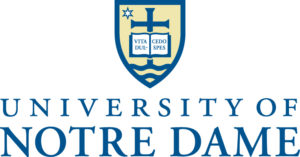
The University of Notre Dame BS in Finance, from the world-renowned Mendoza College of Business, does more than help students stand apart from the crowd. The school’s coursework focuses on innovation, with small class sizes to ensure that students have faculty support and room to develop. Since technology is changing the financial industry, students learn to use critical thinking skills to resolve unexpected challenges and address problems. By focusing on innovation, students develop critical thinking skills that set them apart when looking for a career in finance.
The University of Notre Dame is a legendary institution, and the Mendoza College of Business is regularly ranked among the greatest business schools in the world by publications like U.S. News and Forbes. The Mendoza school was founded in 1921 and has followed the high standards set by the founder of the college, Father John Francis O’Hara. Undoubtedly one of the best undergraduate schools for finance majors, Mendoza teaches students that the goal of commerce is service to mankind above all.
Business School: Mendoza College of Business
Degree: BS in Finance
Click to learn more about this finance degree!
5. Cornell University — Dyson School

The Dyson School, part of the SC Johnson College of Business, offers Cornell University’s Bachelor’s in Applied Economics and Management, or AEM. Students are able to focus their degree with a concentration in Finance. A focus on combining the insights of economics and management sets the foundation for a student’s career and teaches leadership skills they need to advance in the finance sector. The program teaches students useful skills that apply to a variety of businesses and company settings.
Cornell University is the youngest member of the Ivy League, founded in 1865 well after its peers in New England. Unlike the other Ivy League universities, Cornell had its beginning as the most cutting edge, technologically advanced university in the nation, with a mission to provide the most modern, practical, and innovative education in the world. Today, Cornell continues that mission, earning recognition not only as one of the best research universities in the US, but as a powerhouse of discovery and a place for social mobility and engagement. One of the best colleges for finance is just one part of Cornell’s excellence.
Business School: Dyson School
Degree: Dyson School undergraduates major in applied economics and management (AEM), concentration in Finance available
Click to learn more about this finance degree!
6. Santa Clara University — Leavey School of Business

Santa Clara University’s BS in Commerce — Finance concentration is a prime bachelor’s degree in finance from one of the best small business schools in the nation, the Leavey School of Business. Students learn practical financial skills as well as psychology and ethics that surround the industry. Since psychology plays a significant role in the finance sector, students learn to recognize the ways human behavior may change outcomes. A Jesuit focus on values and ethics keeps Santa Clara’s Finance bachelor’s honest.
Santa Clara University is a Jesuit Catholic university that dates back to 1851, standing as the oldest remaining college in California. However, Santa Clara’s proximity and close relations with Silicon Valley ensure that it remains at the forefront of higher education. Students learn more than just the financial services. Santa Clara makes sure students are prepared for the real world of work with a holistic approach to education — not just career-centered, but human-centered. That makes Santa Clara one of the best undergraduate schools for finance majors who want to make a difference.
Business School: Leavey School of Business
Degree: BS in Commerce — Finance concentration
Click to learn more about this finance degree!
7. Washington University in St. Louis — John M. Olin Business School

Washington University in St. Louis’ Bachelor’s in Finance comes from the John M. Olin Business School, one of the most acclaimed business schools in the Midwest. The program recognizes that you have a variety of career opportunities when you study finance, so students prepare for the different opportunities through a variety of coursework and classes. Students have the opportunity to take advanced courses in asset management when they want to develop specific skills for a career in the financial services industry.
Washington’s Olin Business School dates back to 1917, making it one of the oldest and most prestigious business schools in the nation. A key advantage that sets Washington University apart for finance students is the opportunity to manage a portion of the university’s endowment funds. The Investment Praxis elective course gives students a chance to learn how to invest and take part in the stock market before they begin a career in finance. That gives students a competitive edge by teaching valuable skills to limit risks and understand changes in the stock market, and makes Washington one of the best colleges for finance.
Business School: John M. Olin Business School
Degree: BS in Finance
Click to learn more about this finance degree!
8. Georgetown University — McDonough School of Business

The McDonough School of Business offers Georgetown University’s BS in Finance, helping students prepare for a career in the finance sector. The school recognizes the growing shift into international business and offers students a global perspective that allows them to take part in different investment opportunities. Students learn to handle global investment opportunities and financial services in a variety of different settings and environments. That gives them an edge when they are looking for a career in financial services.
Georgetown University stands out from other schools because of their global programs. Founded in 1789, Georgetown is the oldest Catholic college in the US, but that’s not what makes it important — it’s that Georgetown was right there in the heart of Washington, DC, throughout the creation and development of the United States. Few colleges have the reach of Georgetown, from the federal government to foreign allies, and a global perspective means finance students get one of the best bachelor’s degree in finance programs anywhere.
Business School: McDonough School of Business
Degree: BS in Finance
Click to learn more about this finance degree!
9. University of Virginia — McIntire School of Commerce

The University of Virginia’s BS in Commerce-Finance concentration from the McIntire School of Commerce puts an emphasis on leadership and integrity, which allows students to take on leadership roles as they move into a corporate setting. From the junior-year Integrated Core Experience, one of the most rigorous business curriculums in the nation, students take on their concentration in their senior year. McIntire students learn the full range of global commerce from professionals who are active practitioners for the most current bachelor’s degree in finance possible.
As one of the original Public Ivies, founded by Thomas Jefferson and carrying a long tradition of influence, what sets the University of Virginia apart is their focus on leadership. Students learn to grasp a situation quickly and adapt to the situation to resolve potential problems. The ability to work effectively in a group and lead others will enhance career opportunities. By focusing on leadership, the school encourages students to take part in more complex roles after they start a new career. That makes the McIntire School one of the best undergraduate schools for finance majors by far.
Business School: McIntire School of Commerce
Degree: BS in Commerce
Click to learn more about this finance degree!
10. Boston College — Carroll School of Management

Boston College’s bachelor’s degree in finance comes from the Carroll School of Management, one of the most infamously challenging — and best-connected — business schools in the world. Since students must learn effective research skills when working in finance, the Carroll school takes a quantitative and analytical approach to finance, students have the skills to handle advancements in technology and the changes that may arise in finance companies. With Boston College’s BS in Finance, students can take on any challenge.
Boston College is ranked in the top 15 colleges by U.S. News and World Report for the school’s rigorous training and education. With its location in one of the world’s centers for finance and banking, Boston College gives students ample opportunity to learn from skilled professors who understand the financial markets and make time to address concerns students may voice over time. The access to faculty combined with the innovative approach to the industry ensures that students have the skills they need to succeed in a career, making BC one of the best colleges for finance in the world.
Business School: Carroll School of Management
Degree: BS in Finance
Click to learn more about this finance degree!
11. Carnegie Mellon University — Tepper School of Business

Tepper School of Business offers Carnegie Mellon University’s bachelor’s degree in finance, one of the most innovative and technologically advanced in the US.The finance concentration puts an emphasis on investment analysis and corporate finance using technology. By having a strong foundation in business followed by learning the skills companies need for financial service professionals, students will have the ability to handle a career in a corporate or banking environment. No wonder U.S. News ranks Tepper a top 10 undergraduate business school.
Carnegie Mellon University has a competitive edge over other colleges because it tailors courses and studies to the complexities of a changing business environment. From its beginning, Carnegie Mellon was rooted in practical, real-world application, and that’s just as true of the bachelor’s in finance program. By keeping up with changing technology and theories, the school ensures that students are prepared for whatever comes after graduation, and whatever changes shape the finance sector.
Business School: Tepper School of Business
Degree: Bachelor’s in Finance
12. Drake University College of Business & Public Administration
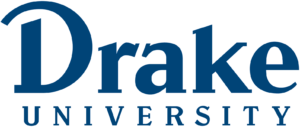
Drake University’s BS in Finance degree program develops students’ analytical skills and focuses on communication in a corporate setting. By learning to communicate and analyze information, students are able to keep up with the high standards of a financial firm or company. Students are able to focus their studies on specific areas of finance for a competitive edge when they are looking for a new job. Drake’s College of Business & Public Administration provides ample opportunity for internships and experiential learning for an immediately applicable degree.
Drake University began in 1881 and helped build Iowa’s culture from the frontier days until now, when it continues as one of the state’s premiere private universities. Drake stands out by providing access to professors when students have questions or concerns, using a low student:faculty ratio to provide exceptional mentorship and support. By working with skilled professionals, students have the opportunity to gain advanced knowledge of the finance sector, making Drake’s bachelor’s degree in finance one of the best in the Midwest.
Business School: College of Business & Public Administration
Degree: BS in Finance
Click to learn more about this finance degree!
13. Wake Forest University School of Business

Wake Forest University’s BS in Finance degree program allows students to develop a strong foundation in the industry before they start a career. The school focuses on teaching students about business and economics as well as the financial topics they may expect when starting the program. By giving students a foundation in other areas of business, they have the ability to handle a variety of different situations in a corporate or business setting.
Wake Forest University is often considered one of the Southern Ivies, and belongs to the select class of elite private research universities in the South. Wake Forest’s School of Business is widely ranked one of the best in the nation, including #1 for academic quality according to Businessweek. The Business School emphasizes the integration of studies to prepare students for an international stage, making it one of the best undergraduate schools for finance majors in the South, or nationwide.
Business School: School of Business
Degree: BS in Finance
Click to learn more about this finance degree!
14. Lehigh University College of Business and Economics

Lehigh University’s Bachelor’s in Finance degree program comes from the Perella Department of Finance in the College of Business and Economics. This AACSB-accredited program provides a cross-disciplinary MS in Analytical Finance. Each of these programs receives instruction from expert faculty members in their state of the art Center for Financial Services lab. Students have the option of participating in the student investment club when pursuing their bachelor’s degree in finance as well.
Founded in 1865 as a private institution, Lehigh has remained a small school, with an undergraduate population of just 5000. That small size has allowed Lehigh to build a reputation for student support and mentorship that makes it one of the best colleges for finance and dozens of other majors. U.S. News and World Report ranks Lehigh as a best value, and their online business programs have been ranked in the top 20 nationally. Named a Hidden Ivy (a testament to its low profile and excellent quality), Lehigh is easily among the best undergraduate schools for finance majors.
Business School: College of Business and Economics
Degree: Bachelor’s in Finance
Click to learn more about this finance degree!
15. Villanova University School of Business

Villanova University’s BS in Finance degree program provides understanding of technology, quantitative methods, ethical issues, global issues, and communication. A unique Applied Quantitative Finance Concentration (AQF) is also available, focusing on utilizing quantitative techniques for targeting practical applications. The quality of one of the best colleges for finance is even greater with all of the extracurricular opportunities for finance majors. Those studying for their BS in Finance have the opportunity to participate in the Villanova University Equity Society, Villanova Fixed Income Society, Villanova Financial Management Society, and the Villanova Technical Analysis Group.
Villanova University began in 1842 (but has roots going back to the 18th century) as one of the oldest Catholic universities in the North. Building on Augustinian tradition, Villanova has long been known for academic rigor and excellence, particularly in undergraduate education. Ranked a top 50 Best Value School by U.S. News & World Report, Villanova has also been named Bloomberg Businessweek’s #1 undergraduate business school. Villanova’s dedication to technology, innovation, and the cutting edge of education makes it one of the best undergraduate schools for finance majors.
Business School: School of Business
Degree: BS in Finance
Click to learn more about this finance degree!
16. University of Florida — Warrington College of Business
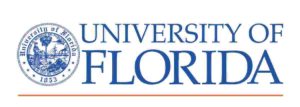
University of Florida’s BS in Business Administration-Finance is just one of 5 concentrations in the BSBA program. The Warrington College of Business is regarded as one of the top business schools in the South, and the BSBA-FIN does much more than tack on a few finance electives; it’s an in-depth education in money and capital, building leaders and entrepreneurs in the investment field. For those looking for the best colleges for finance, UF’s Warrington College earns its top rankings.
The Warrington College of Business at the University of Florida receives its accreditation from the AACSB — The Association to Advance Collegiate Schools of Business. The University of Florida has long ranked among the best public research universities in the US, and it has been central to professional life in the Sunshine State since 1853. UF embraces values including communication, hospitality, humor, and respect — all qualities that help make for one of the best colleges for finance.
Business School: Warrington College of Business
Degree: BS in Business Administration-Finance concentration
Click to learn more about this finance degree!
17. New York University — Stern School of Business

New York University’s BS in Business-Finance concentration is one of the best possible choices for those who would like to enter the financial industry. After all, the Stern School of Business is in the heart of Manhattan — the center of world finance. It’s possible for the course curriculum to have a division into two subfields including investments/capital markets and corporate finance. Students should take note of the fact that many overlaps occur in each subfield. Those pursuing their bachelor’s degree in finance can look at descriptions in the course index for further information regarding prerequisites and scheduling options.
NYU’s Stern School was initially founded in 1900 as a training school for students who had an interest in careers in commerce in New York City. Stern ranks as one of U.S. News’ top 20 Best Business Schools and, regarding their specialty rankings, they’re now ranking #3 in Finance. The School of Business’s motto is “Be Possible.” Their core values include academic excellence, the potential of adult education, community cooperation, equality, and harnessing the energy of a global hub.
Business School: Stern School of Business
Degree: BS in Business — Finance concentration
Click to learn more about this finance degree!
18. University of Wisconsin — Madison School of Business

The University of Wisconsin at Madison’s BBA in Finance, Investment, and Banking for students with the goal of career advancement or furthering their education. Somewhat broader than other bachelor’s degree in finance programs, the BBA provides expertise in banking, capital markets and structure, financial instruments, and managing the financial resources of an organization. Students will acquire skills in security trading, financial forecasting, venture capital, security analysis and valuation, financial risk management, security issuance, and international finance, and government policy and financial markets.
The University of Wisconsin at Madison’s School of Business receives its accreditation from the Association to Advance Collegiate Schools of Business. The university was initially founded in 1848 as a public institution, and over more than a century and a half UW has become a center for learning, culture, and business for the Midwest. U.S. News & World Report perennially ranks UW one of the top public research universities in the nation. Their motto is, “Numen Lumen,” which is Latin for, “God, our light.” The university embraces values including service, scholarship, science, and social responsibility.
Business School: School of Business
Degree: BBA — Finance, Investment & Banking
Click to learn more about this finance degree!
19. University of Illinois at Urbana-Champaign — Gies College of Business
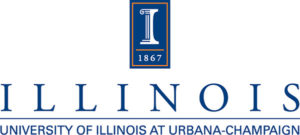
The University of Illinois at Urbana-Champaign’s BS in Finance comes from the AACSB-accredited Gies College of Business. The UI Finance bachelor’s focuses on the practical uses of financial expertise, from the management and acquisition of funds to financial advice determining the values of real and financial assets. The Gies College, with a national reputation for excellence and a massive presence in the financial field and online, is one of the all-time best schools to study finance.
Initially founded in 1867 as a public institution, UI is one of the Midwest’s key hubs for learning and research — as well as defining the “college town” with the much-loved Urbana-Champaign. Ranked in the top 50 National Universities by U.S. News & World Report, UI’s motto is, “Learning and Labor,” and its campus culture shows it. With top rankings for the Gies College of Business, UI ias easily one of the best colleges for finance, providing students with connections to the banking and finance sector of Chicago and nationwide.
Business School: Gies College of Business
Degree: BS in Finance
Click to learn more about this finance degree!
20. University of Georgia — Terry College of Business

The University of Georgia BBA in Finance degree program brings all of the excellence of the Terry College of Business to a degree that will steep students in the use of financial analysis and theory. Students learn to use financial analysis to manage assets, plan for future expenses, and build wealth. Those seeking the best colleges for finance can expect career opportunities as investment banking analysts, financial analysts, loan auditing managers, and junior traders following graduation from the University of Georgia.
The Terry College of Business is one of the most respected business schools in the South, while it is known around the world for its unparalleled music business programs. Founded in 1785, UGA was the first public university to admit students, and today, according to U.S. News & World Report, the university ranks as a top 50 National University. The mission of the Terry College of Business is to ensure students receive high-quality learning experiences through their three central missions: research, service, and teaching.
Business School: Terry College of Business
Degree: BBA in Finance
21. Penn State University — Smeal College of Business

The Smeal College of Business offers Penn State University’s BS in Finance degree program, designed for those who wish to pursue careers in the fields of banking, corporations, government, and insurance. Students attending the Smeal College of Business will have access to the Nittany Lion Fund, where they will oversee millions of dollars from actual real-world investors. They’ll also participate in the Rogers Family Trading Room, which is a replication of real-world trading experience.
Penn State University is Pennsylvania’s flagship public university, founded in 1855 as a public institution, and its influence not only in Pennsylvania, but the Northeast and the US in general, is hard to calculate. Their motto is, “Making Life Better,” and Penn State has been doing just that for traditional undergraduates, working adults, and career-changing professionals for generations. The AACSB-accredited Smeal College of Business
Business School: Smeal College of Business
Degree: BS in Finance
Click to learn more about this finance degree!
22. Case Western Reserve University — Weatherhead School of Management

Case Western Reserve University’s bachelor degree in finance programs offer more options than usual for students entering a finance career. Students can choose between pursuing the BS in Management — Finance Major or the BA/BS degree and MSM — Finance Integrated Program. Not only will they have exposure to a world-class faculty in banking and finance, but they’ll also experience. They’ll develop strong financial management skills as well as learning how to solve business and management problems. Considered one of the best undergraduate schools for finance majors, Weatherhead offers a curriculum that will prepare them for today’s financial industry’s demands.
Case Western dates back to 1826 and has long been a leader in undergraduate education; CWU currently ranks as a top 50 National Universities and Best Value according to U.S. News & World Report. The university’s motto is, “Think Beyond the Possible,” and that is certainly true in the Weatherhead School of Management. One of the best college for finance, Weatherhead is also known for The Center for Business as an Agent of World Benefit, a research center dedicated to positive impact, inclusiveness and diversity, integrity and transparency, and effective stewardship.
Business School: Weatherhead School of Management
Degree: BS in Management-Finance or BA/BS Finance Integrated Program
Click to learn more about this finance degree!
23. Ohio State University — Fisher College of Business
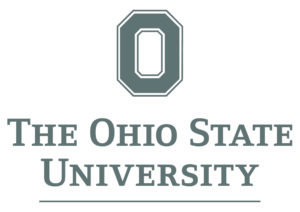
The Ohio State University’s BS in Finance degree program allows students opportunities to pursue careers in financial management in financial institutions, businesses, and investment firms. They’ll study concepts including capital budgeting, debt policy, dividend policy, leasing policy, option pricing, and a projected cost of capital. Because students are expecting to attend the best colleges for finance, they can expect career outcomes including savings and loan managers, stockbrokers, financial management firms, and trust management.
One of the most innovative (and largest) universities in the US, the Ohio State University was founded in 1870 and built a reputation as a center for learning and research for the Midwest over a century and a half. Regularly ranking among the top 20 public universities, Ohio State has been called a Public Ivy. Meanwhile, the Fisher College of Business ranks as one of the top undergraduate business schools in the nation, and has been called one of the best in the US for return on investment by the Wall Street Journal. Students would be hard pressed to find something better for a bachelor’s degree in finance.
Business School: Fisher College of Business
Degree: BS in Finance
Click to learn more about this finance degree!
24. Tulane University — Freeman School of Business
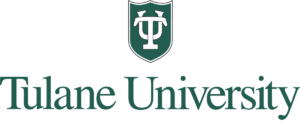
Tulane University’s BS in Management-Finance is the most popular offering at the Freeman School of Business. Graduates find careers in commercial banking, corporate finance, as investment analysts, and financial intermediations. Some of the potential learning outcomes include fine-tuning skills with electives including risk management, as well as conquering the basics with core courses on fixed income analysis, investments, and valuation. The Goldring Institute of International Business increases the value of a Tulane Finance BS with study abroad opportunities to increase students’ command of international finance.
Tulane University’s AACSB-accredited Freeman School of Business dates back to 1914, making it one of the oldest business schools in the South, and it’s still one of the most respected. The center of learning and culture for New Orleans, Tulane ranks as a top 50 National University according to U.S. News & World Report, while the Freeman School is one of the most productive schools for research. Tulane’s core values include integrity, responsibility, respect, and empowerment, and nowhere is that more true than in their BS in Finance program, one of the nation’s most diverse.
Business School: Freeman School of Business
Degree: BS in Management — Finance concentration
25. University of Texas at Austin — McCombs School of Business

The University of Texas at Austin BBA in Finance degree program comes from the award-winning McCombs School of Business While many students will focus on a general finance major, it’s also possible to specialize in a concentration, including banking, corporate finance and investments, energy finance, and more (6 in all). For students who want to find the best undergraduate schools for finance majors, the bachelor’s degree in finance at McCombs will prepare them for career advancement and furthering their educational goals.
Texas has one of the biggest, most prestigious public university systems in the US, but the University of Texas at Austin has been the center of it all since 1883. One of the most loved and most respected public research institutions in the world, UT is also located in one of the best possible places for a bachelor’s degree in finance. With a booming economy based in tech, entertainment, and media, the McCombs School of Business is turning into one of the best undergraduate schools for finance majors in the nation.
Business School: McCombs School of Business
Degree: BBA in Finance
Click to learn more about this finance degree!
What Can I Do With a Bachelor’s Degree in Finance?
Graduates with a bachelor’s degree in finance have opportunities to explore a broad range of career opportunities. (See “What is an Undergraduate Degree?”) Some include working in business, corporate finance, insurance, or real estate. When pursuing a degree focusing on this concentration, students will obtain skills in accounting, bond valuation, investment management, and financial analysis. Therefore, it’s possible to find finance degree jobs in these areas of specialization upon graduation from the best undergraduate finance schools.
Because colleges and universities provide extensive course offerings to those pursuing their BS in finance, students completing these degree programs will have the necessary preparation for filling professional roles in a variety of settings. These programs are considered the top degree for finance. The best finance undergraduate schools prepare students for advancing their education toward post-graduate work as well as career advancement. Those earning their BS in finance can work in finance degree jobs including asset managers, branch managers, loan officers, mortgage sales associates, and sales representatives.
How Do I Find the Best Colleges for Finance?
Finding the best schools to study finance begins by searching which ones have accreditation and the highest rankings. These facts don’t just provide with information regarding their reputations. They also show the rigorous evaluations these learning institutions must go through to meet best practices. The best finance programs should all be accredited. Also consider financial aid options.
To be considered reputable, the best colleges for business and finance should have regional accreditation recognized by the Department of Education. However, it’s also extremely important whether the business program receives its accreditation from the Association to Advance Collegiate Schools of Business. AACSB accreditation promises students a top degree for finance. The best finance colleges in turn give you a strong presence on the finance degree jobs market.
Before enrollment, you should consider some fundamentals. Are you going to be in-state or out-of-state? Online or on-campus? Is your high school GPA and ACT or SAT scores high enough? Can you finish in four years?
How Much Money Can I Make with a Bachelor’s Degree in Finance?
According to Payscale, the average finance degree salary is $63,365 per year. Top three jobs in this field include becoming a Senior Financial Analyst with an average salary of $117,270 per year, Financial Advisor with an annual salary of $80,579, and a Financial Analyst earning $76,199 annually.
Those holding an accounting and finance degree have opportunities for earning a higher income. According to Payscale, an accounting and finance degree salary is $84,000 annually. The top three careers in this field include becoming a Financial Controller earning $250,300 per year, a Senior Accountant for $88,890 annually, or a Staff Accountant that earns $54,216 yearly. According to a survey conducted by NACE during winter of 2018, the average median finance degree salary out of college is $124,000, and the mean salary is $107.000.
According to Payscale, the average bachelor’s in finance salary is $79,000 per year. The top careers in this field include working as a Finance Manager earning $131,067 annually, a Senior Financial Analyst for $98,274 yearly, or a Financial Analyst making $76,199 each year. The hourly rate for BBA in finance jobs include working as a Staff Accountant for $34.83 per hour, a Financial Analyst for $38.62 hourly, or as a Credit Analyst for $26.60 each hour.
Is a BS in Finance or a BBA in Finance a Better Choice?
For those who may not realize, there is some difference between a BS and BBA in finance. Therefore, you may be wondering which is the top degree for finance. Each degree program provides the prospective student with solid preparation and foundations regarding entrepreneurial goals and career pursuits. The best undergrad finance schools may have both.
Those who opt for a BS (Bachelor of Science) degree will focus more heavily on areas like analysis, technology, and mathematics. A BS in finance program, as the “science” part suggests, will be more technical. A BBA (Bachelor of Business Administration) puts more emphasis on management, leadership, and theory, on the other hand. These key differences in schooling lead to key differences in the career path.
BBA in finance jobs will sway more in the direction of leadership and management, then, and a BBA in finance salary will look somewhat different because of it. A BS in finance may expect roles like Analyst, while a BBA in finance will expect roles like Financial Manager. A BBA in finance may make slightly more at some firms, but the greater technical expertise of the BS in finance may make it more valuable in other settings. Therefore, it’s a matter of preference which is a better choice.
Related Rankings:
10 Fastest Online Finance Degree Bachelors Programs
15 Best Online Finance Degree Bachelors Programs

